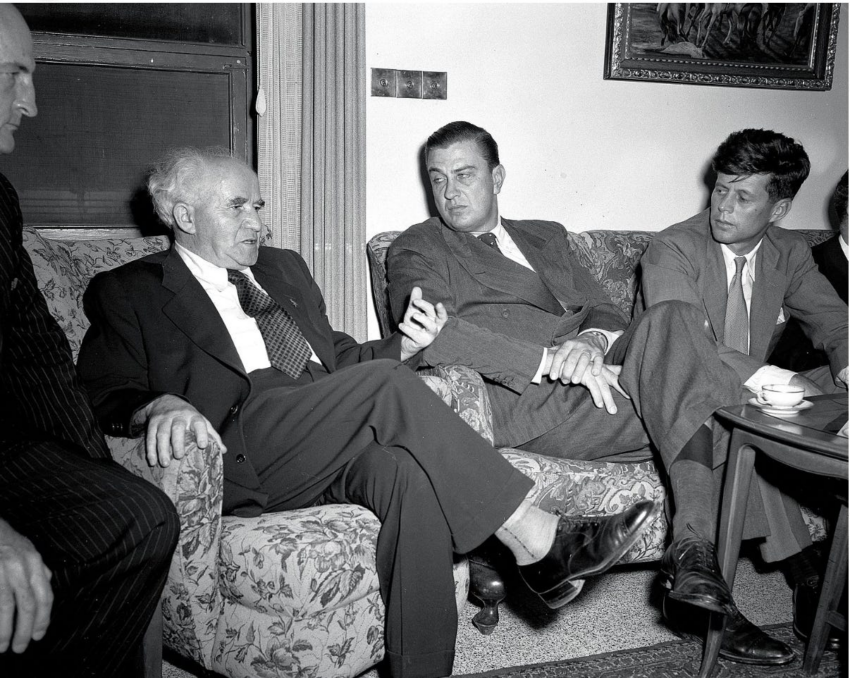When my brothers and I were in our teens, my parents found it impossible to let one of us have an expensive and dangerous toy without letting all of have the same. A bass-boat, a new Motocross bike, a fast car—if one of us got one, then by Jove it was only fair that all of us got one. The same was true of weapons, which were easy for teenagers to acquire in Texas in the 1980s. Sure, my parents could forbid us from acquiring dangerous toys, but we were skilled at clandestine possession. One day my mother was shocked to learn that I owned a Yamaha Seka 750 motorcycle, and she demanded to know how I had kept it a secret from her. I confessed that I kept it in a friend’s garage.
Almost as soon as President John Kennedy was sworn into office, he was presented with evidence that Israel was probably developing nuclear weapons, with special concern expressed about an apparent enrichment reactor at Dimona.
Kennedy’s Secretary of State, Christian Herter, expressed grave concern that if Israel acquired nuclear weapons, it would incite Israel’s neighbors to seek the same. Herter reasoned that it was completely untenable to tell the Arabs and Persians that they can’t have the bomb but that the Israelis can.
Even if the argument that Israelis are civilized while the Arabs and Persians are barbarians were completely true, it has no persuasive power for the Arabs and Persians. On the contrary, they find this claim deeply insulting and all the more reason to seek the bomb.
I have no doubt that David Ben-Gurion perfectly understood this. He was an extremely smart and perceptive guy who, perhaps more than any other Israeli leader, understood how the Arabs felt. As relentlessly tough as he was, he also occasionally expressed sympathy for the Arabs. Nevertheless, he concluded it was best for Israel to acquire what he perceived to be the advantage offered by nuclear weapons as a means of deterring Arab and Persian aggression. Kennedy believed he that Ben-Gurion was wrong about this. As the American president saw it, a bomb for Israel would lead to proliferation, thereby elevating the risk of an eventual nuclear exchange.
What is especially strange and puzzling about the current conflict with Iran is that it is apparently being driven (at least partly) by the fear the Cold War doctrine of mutual assured destruction (MAD) is not applicable to the guys who run Iran, who are perceived to be non rational actors. A good friend with family in Israel—who also happens to have excellent judgement about most things—has told me his concern that MAD simply won’t work with Iran’s bosses.
The older I get, the more I appreciate that war is man’s ineluctable fate. As George Santayana put it, “Only the dead have seen the end of war.” We are stuck with human nature, and man is a tribal, war-making animal.
Author’s Note: Speaking of man’s persistent but fascinating folly, such is the overarching theme of my new book with co-author, Peter McCullough M.D. Please check out the book’s Amazon page and share it with your friends.
Click this link for the original source of this article.
Author: John Leake
This content is courtesy of, and owned and copyrighted by, https://petermcculloughmd.substack.com and its author. This content is made available by use of the public RSS feed offered by the host site and is used for educational purposes only. If you are the author or represent the host site and would like this content removed now and in the future, please contact USSANews.com using the email address in the Contact page found in the website menu.










